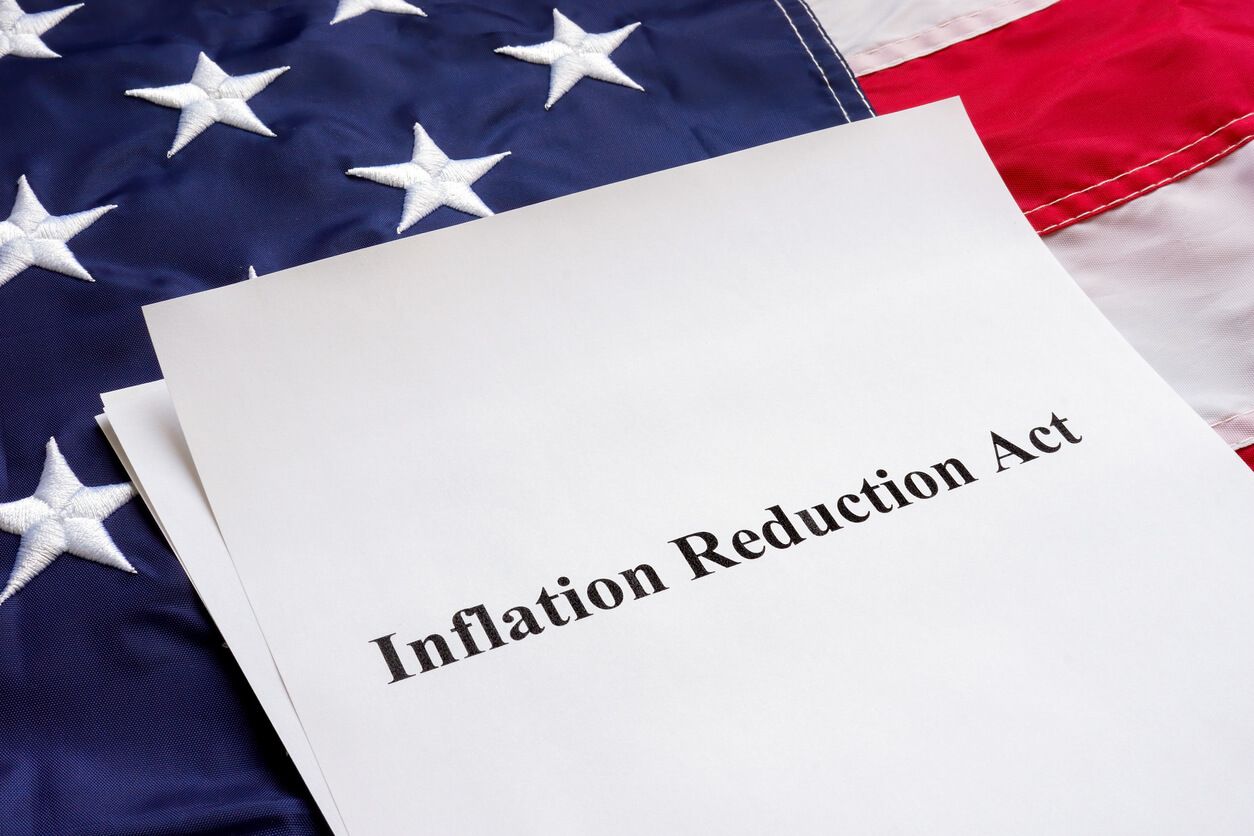US Climate Bill: Accelerating Alternative Energy Efforts

In August 2022, President Joe Biden signed the Inflation Reduction Act of 2022 (also called the US Climate Change Bill) into law. This groundbreaking bill is the United States’ most ambitious climate legislation to date, investing billions of dollars into meeting climate goals and strengthening energy security.
Since signed into law, the IRA has made great strides toward a cleaner, more sustainable future. Let’s take a closer look at what has been accomplished thus far and what we can expect in the years to come.
What Are the Components of the Inflation Reduction Act (IRA)?
While the name of the bull suggests inflation reduction, its primary investments lean toward energy and climate measures, including:
- Investments in low-carbon energy, including tax credits for clean hydrogen and carbon capture and storage (CCS)
- Residential tax credits for low-emissions technologies, including solar panels, heat pumps and energy-efficient technologies
- Tax credits to encourage low-emission and electric vehicle purchases
- Commercial tax credits for domestic clean energy technologies, such as solar panels, batteries, wind turbines and electric car manufacturers
So why focus on tax credits to encourage purchases instead of regulations that could severely impact the operation of carbon-producing industries? As lawmakers rejected the original “Build Back Better” bill, the IRA is more a “step in the right direction” than a lead foot. Focusing on incentives rather than regulations allows companies to use the best technology available instead of being tied to today’s innovations.
How Does the IRA Affect Alternative Energy?
Clean energy provisions in the bill are focused on:
- Building an affordable, reliable energy sector.
- Accelerating clean energy technology deployment.
- Reducing global carbon emissions.
- Driving down alternative energy production costs and lowering consumer spending on hydrogen fuel.
- Supporting American innovation.
- Strengthening the U.S. economy.
What the IRA has Accomplished
In just over a year, the Inflation Reduction Act has had a significant impact on the climate and the economy.
Billions Invested into Clean Energy
The private sector announced more than $110 billion in clean energy manufacturing investments, including over $70 billion in the electric vehicle industry and over $10 billion in solar manufacturing.
Increase in Green Energy Jobs
An astonishing 170,000 jobs have already been created as a result of climate and clean energy investments, and another 1.5 million jobs are projected to be created over the next decade.
Cleaner Air, Healthier People
The Department of Energy announced that climate progress driven by the IRA and the Bipartisan Infrastructure Law is estimated to reduce U.S. greenhouse gas emissions by up to 40% below 2005 levels by 2030 – that’s over 1 billion tons. As a result, we’ll breathe cleaner air and lead healthier lives. Pollution reduction from clean energy investments may prevent up to 4,500 premature deaths and 119,000 asthma attacks annually by 2030, translating to $27 to $42 billion in avoided health damages.
Furthermore, the IRA awarded over $1 billion to help communities become more resilient and protect them from the adverse effects of climate change.
Supporting Domestic Manufacturing
Clean energy tax incentives rely on increasing proportions of domestic content, which support the build-out of secure supply chains and domestic manufacturing. More specifically, these incentives provide a long-term investment signal for critical mineral processing and battery production as well as the domestic production and assembly of electric vehicles. As a result, the IRA indirectly addresses energy and national security risks stemming from China’s dominance of a wide array of supply chains.
The United States Re-Established as a Global Climate Change Leader
The United States’ withdrawal from the Paris Agreement in November 2020 significantly affected global climate change efforts. As the second-largest carbon emitter worldwide, adopting the IRA demonstrates our commitment to emissions reductions and credibility as a leader in climate improvement advancements.
Where the IRA Falls Short in Battling Climate Change
Environmental groups have, for the most part, praised the Inflation Reduction Act for the benefits it has had (and will have) on meeting climate goals. However, some have criticized the bill for making approval of new renewable energy products conditional on offering a certain acreage of new oil and gas leases. This was done largely to appeal to states heavily reliant on fossil fuels, like West Virginia. The joining of clean energy expansion with fossil fuel extraction sends a mixed message that could inhibit climate change mitigation efforts.
Another concerning aspect of the IRA is that it ties oil and gas extraction to offshore wind leasing for a total of ten years. As a result, the Interior Department will be unable to issue offshore wind development unless at least sixty million acres are leased for oil and gas in the previous year.
Concerns have also been raised over potential trade conflicts that may come as a result of domestic manufacturing. While building domestic industries stimulates the U.S. economy, it also risks alienating allies and sparking backlash. Furthermore, countries may worry that their own hydrogen or electric vehicle firms will be undercut by large U.S. subsidies.
However, the IRA is more a step in the right direction than it is a cure-all. With Biden still in office, we can expect to see further strides toward clean energy throughout his presidency.
FASTECH: Committed to Alternative Fueling Infrastructure
While the IRA doesn’t address all the challenges we face in our fight against climate change, it does bring alternative energy initiatives into focus.
Would you like to play a role in making alternative energy infrastructure a reality? If so, you’ve come to the right place. FASTECH is committed to leading the way in hydrogen, CNG and LNG technologies that are cleaner and more sustainable.
If you’re looking for a partner in end-to-end renewable energy engineering procurement, construction and maintenance solutions, look no further than FASTECH.
Contact us today to discuss your project.




